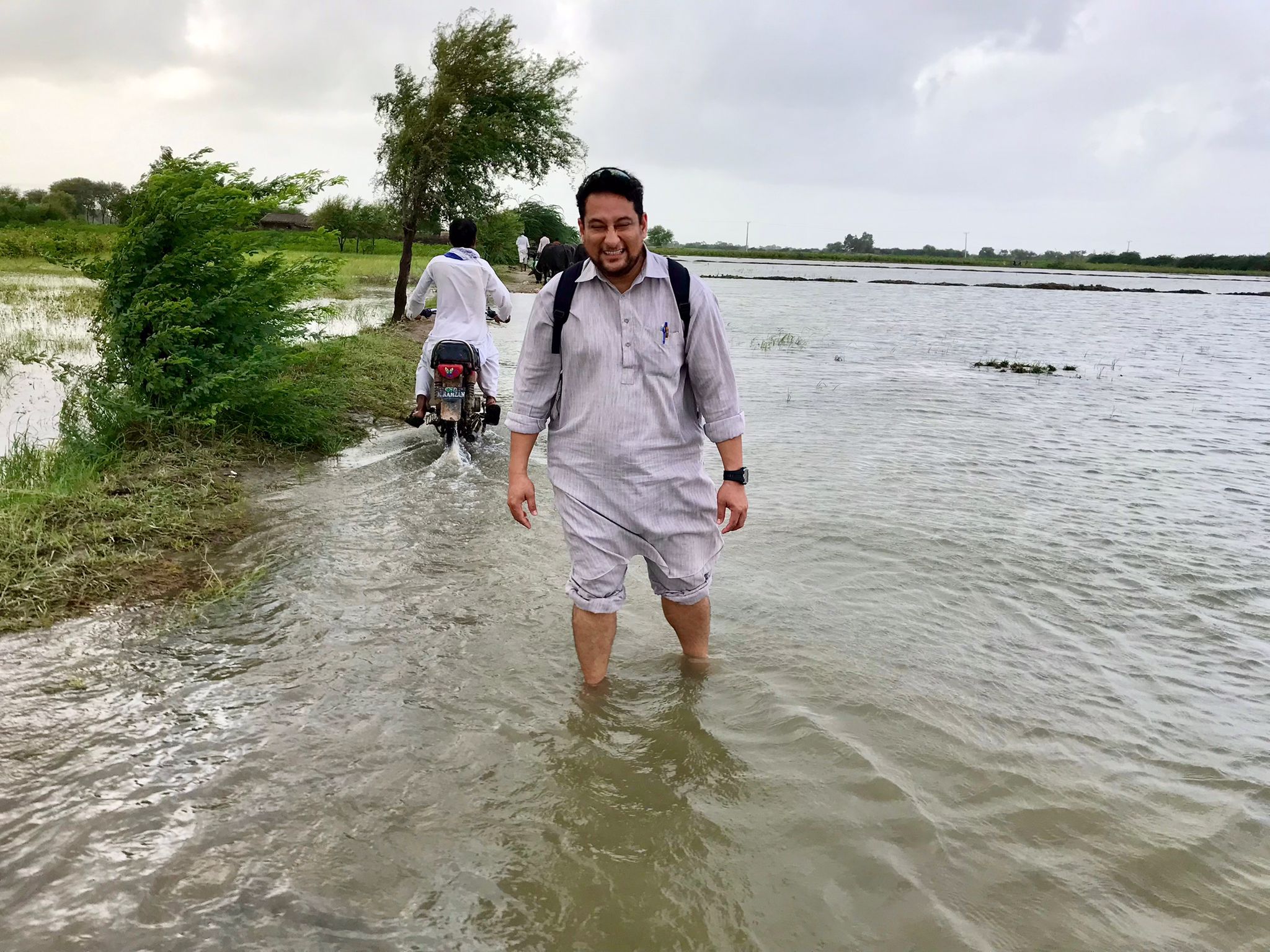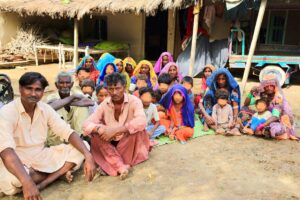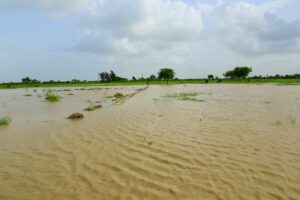
This year has seen one of the worst monsoon seasons in Pakistan in decades. The rain that started in June is still continuing. Up to 1,136 people have lost their lives, writes Columban missionary Fr Liam O’Callaghan.
The Government has declared a national emergency as over 30 million people have been badly affected. According to the National disaster Management Agency (NDMA) 1,136 people have lost their lives, many more are injured; over 220,000 houses have been destroyed and over 500,000 more homes have been damaged.
Over 4,000km of roads and more than 200 bridges have been damaged which makes getting in aid even more difficult. The economic losses are estimated to be over $10 billion.
While all of Pakistan has been suffering, Sindh and Baluchistan provinces have been the worst affected; they experienced 522% and 469% more than average yearly monsoon rain respectively. The Met office said Sindh received 680.5 mm of rain since July, whereas it would normally on average receive 109 mm.
In Sindh, the majority of the province is under water at the moment. The disaster agency for Sindh said about two million acres of cultivated crops have been wiped out and many hundreds of thousands of livestock have been lost. This will lead to food shortages and food inflation over the coming months.
 In the Columban-run parish of Badin, about 100 km south east of Hyderabad, the danger from the floods has been substantial. The parish is home to people of the Parkari Kholi and Sindhi Bheel tribal groups and also the Punjabi community. Fr Pat Visanti, after doing an initial survey, estimates that seven houses have been destroyed, a further 55 partially damaged and over 100 families, in sudden unemployment, are in need of food rations. It is a dire situation and will take a long time to recover.
In the Columban-run parish of Badin, about 100 km south east of Hyderabad, the danger from the floods has been substantial. The parish is home to people of the Parkari Kholi and Sindhi Bheel tribal groups and also the Punjabi community. Fr Pat Visanti, after doing an initial survey, estimates that seven houses have been destroyed, a further 55 partially damaged and over 100 families, in sudden unemployment, are in need of food rations. It is a dire situation and will take a long time to recover.
Germanwatch, who do an annual Global Climate Index, rates Pakistan as the eighth most vulnerable country to climate change in the world. This is based on their research over 20 years (2000-2019) which shows 173 extreme weather events in that period, leading directly to the deaths of over 10,000 people. In my experience here, the summer temperatures are increasing steadily over recent years, as well as beginning earlier and extending into October.
Equally, the monsoon season had become more unpredictable and with more torrential downpours, we have also experienced unseasonal rain in March/April which has done considerable damage to the wheat crop near to harvesting.
Pakistan has a lethal cocktail of climate change effects – increasing temperatures, up to 50 C at times, unpredictable monsoon rains and glacial melt in the northern Himalayan mountain range. This year, all three have combined to devastating effect. After a relatively harsh and cold winter, spring was effectively missed out as March was one of the hottest on record and by April we had a full-blown heatwave, lasting over a month, right across Pakistan, India and Bangladesh.
 What is particularly worrying is how early it began. The monsoon season started in mid-June and is ongoing. In northern Pakistan, in the Himalayan range, there are 7,532 glaciers, more than anywhere else outside of the Polar Regions and they are melting at a greater rate than before.
What is particularly worrying is how early it began. The monsoon season started in mid-June and is ongoing. In northern Pakistan, in the Himalayan range, there are 7,532 glaciers, more than anywhere else outside of the Polar Regions and they are melting at a greater rate than before.
Despite the undeniable evidence of the effects of climate change in recent years in particular, there is little awareness or action on it from Government level right down to citizens (with some excellent exceptions) it is not really on the agenda.
Combined with poor development and use of resources, rampant corruption e.g. building allowed on flood plains and a fast growing population of about 230 million, the country is particularly poorly equipped to deal with the climate change cocktail mentioned above.
However, Pakistan in line with all countries severely affected by the effects of climate change, have only contributed a miniscule amount of greenhouse gas emissions which are the prime cause of the problem. Unfortunately, in our very unfair world, it is those who have done the least to cause the problem that bear the brunt of the consequences of the climate crisis.
There is a moral responsibility on the big polluting countries – the US, China, Russia, European Union Japan – to reduce their emissions.
It is utterly frustrating how poorly the commitments to the Paris Agreement in 2015 are being implemented by most countries. On top of that, Covid and the Russia-Ukraine war have caused further slippage in honouring climate commitments. In a few short months later this year, two crucial international meetings are taking place – COP27 on climate change in Egypt and COP15 on Biodiversity in Canada.
We are in desperate need of deep commitment from Governments to reaching the set targets. The almost never-ending list of extreme weather events happening continually across the plant in recent months demands urgent action from all of us, and particularly the Governments of the world who will gather in Egypt and Canada, before it is too late.
Support Columbans working with flood victims in Pakistan by donating online here: https://columbans.ie/donate/ Alternatively, please send your donation to the Far East Office, Dalgan Park, Navan, Co Meath C15 AY2Y or call 00353 46 909 8275.